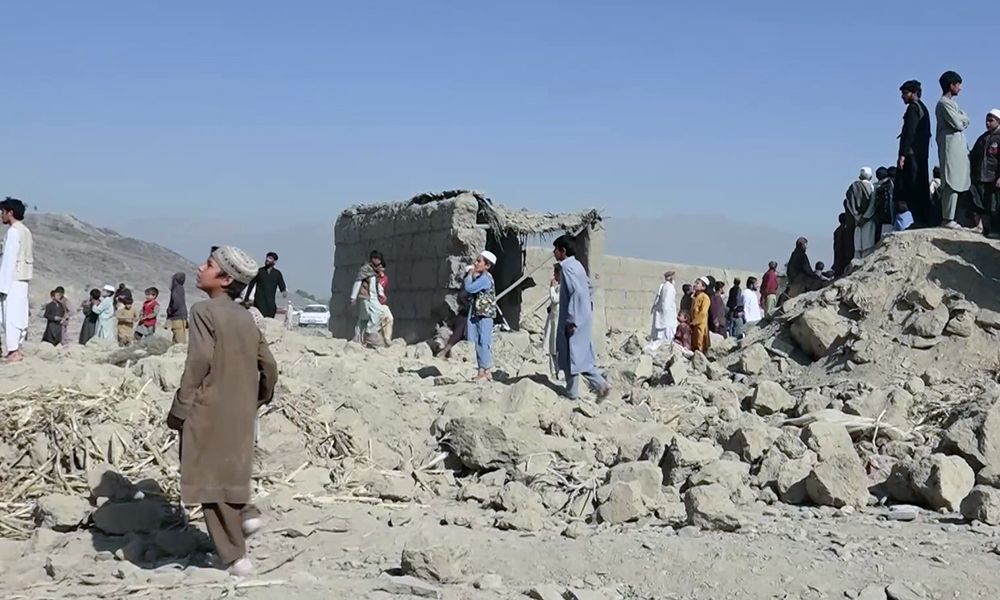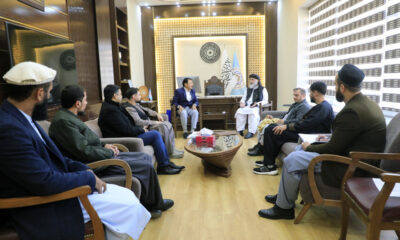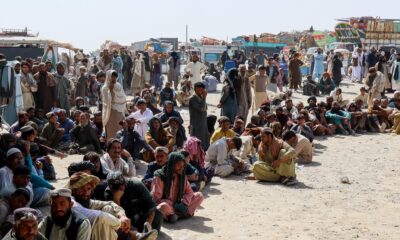Latest News
World Leaders at UN Approve Plan for Refugee Crisis

 World leaders on Monday approved a declaration aimed at providing a more coordinated and humane response to the refugee crisis that has strained resources and sparked divisions from Africa to Europe.
World leaders on Monday approved a declaration aimed at providing a more coordinated and humane response to the refugee crisis that has strained resources and sparked divisions from Africa to Europe.
The issue of what to do about the world’s 65.3 million displaced people took center stage at the U.N. General Assembly with leaders from the 193 member states taking part in the first-ever summit on Addressing Large Movements of Refugees and Migrants.
Advocacy groups worried that the New York Declaration on Migrants and Refugees — an outcome document which contains no concrete commitments and is not legally binding — falls short of what is needed, while U.N. Secretary-General Ban Ki-moon, himself a refugee during the Korean War, hailed it as historic.
“Today’s summit represents a breakthrough in our collective efforts to address the challenges of human mobility,” Ban said.
Around the world, there are currently about 21.3 million refugees, 3.2 million asylum seekers, and 40.8 million migrants, according to the U.N. Refugee Agency. The agency defines refugees as people forced to flee due to armed conflict or persecution, while migrants choose to move in search of a better life.
Afghanistan Foreign Minister Salahuddin Rabbani during his speech has declared different factors for persecution of Afghans to leave their country, poverty, insecurity and unemployment.
The declaration seeks to standardize responses to refugee situations and provide better education prospects for the children who make up over half of the world’s refugees.
It also looks to improve working opportunities for refugees who are now spending nearly 20 years in exile on average.
There are also plans for a campaign to combat xenophobia.
All of this may prove an uphill struggle at a time when refugees and migrants have become a divisive issue in Europe and the United States.
“The overall climate is not very favorable to receiving refugees in many parts of the world but on the one hand, states committed to this so we can remind them of their obligations. On the other hand, states, just like us, need a more predictable way of responding to the refugee crisis that’s what this New York declaration proposes,” Fillipo Grandi, the U.N. High Commissioner for Refugees, told The Associated Press.
Grandi said he disagreed with criticism that the declaration lacked concrete commitments. He said it expands the concept of refugee response beyond humanitarian aid — like food, medicine and tents — to include things like education and jobs.
Still, advocates for refugees expressed disappointment that the U.N.’s need for consensus meant that the stronger provisions in the declaration had been watered down.
Several countries shot down an earlier draft of the declaration that called on nations to resettle 10 percent of the refugee population each year, something that has led several human rights groups to criticize the document as a missed opportunity. The U.S. and a number of other countries also objected to language in the original draft that said children should never be detained, so the agreement now says children should seldom, if ever, be detained.
More concrete progress is expected at a follow-up summit on Tuesday called by President Barack Obama, where at least 45 countries are expected to make pledges that are in line with U.S. goals of increasing humanitarian aid by $3 billion, doubling resettlement and increasing access to education for 1 million youngsters and access to employment for another million of the displaced.
“Both summits are crucial to raising awareness of refugee and migration concerns, and both events are designed to harness the political will of member states to address the global refugee and migration crises we are all facing,” said U.S. State Department spokesman John Kirby, speaking in Washington.
Published by nytimes.com

Latest News
IEA rejects Russia’s claims of foreign militants in Afghanistan
He further called on Russian authorities to reassess their understanding of the situation in Afghanistan and to update their reports based on objective facts on the ground.

The Islamic Emirate of Afghanistan (IEA) has strongly rejected recent claims by Russia regarding the presence of international terrorist groups inside Afghanistan, calling the allegations unfounded and based on inaccurate information.
Speaking on the issue, Zabihullah Mujahid, the spokesperson of the Islamic Emirate, said Afghanistan is fully secure and no foreign armed groups are operating within the country.
He stressed that the entire territory of Afghanistan is under a single authority, leaving no space for external groups to carry out activities.
“We regret that such claims are made from sources in Russia,” Mujahid said, adding that these allegations date back to the past, including the period of the U.S. occupation, and have no basis in current realities. “We categorically reject these assertions.”
He further called on Russian authorities to reassess their understanding of the situation in Afghanistan and to update their reports based on objective facts on the ground.
Latest News
Escalating violence in Pashtun regions during Ramadan raises concerns
He described these incidents as grave violations of international law and acts that have deepened fears among affected communities.

Amid the holy month of Ramadan, violence has continued in several Pashtun areas, raising serious concerns among local communities.
In a post in X, Manzoor Ahmad Pashteen, the founder and head of Pashtun Tahafuz Movement, noted that in Tirah, four Pashtun civilians were reportedly killed and six others injured during operations carried out by the Pakistani army. Protests that followed in Orakzai were also met with force, leaving four more individuals seeking peace and justice injured.
In Afghanistan’s Behsud district, 17 civilians, including women and children, were reportedly killed in airstrikes attributed to Pakistani forces, he stated.
He described these incidents as grave violations of international law and acts that have deepened fears among affected communities.
In recent days, additional casualties have been reported in Rozmak, Shawal (North Waziristan), Mubarak Shahi village (Mir Ali), Speen Wam, Abakhel village, Dosali, Takhte Khel (Lakki Marwat), Azam Warsak (South Waziristan), Bajaur, and Bannu, where clashes between security forces and armed groups have resulted in deaths and injuries among civilians, Pashteen said.
He stated that the ongoing violence reflects longstanding grievances in Pashtun regions. The Pashtun Tahafuz Movement (PTM) has stated that it will continue to oppose what it describes as injustices against Pashtun communities and will stand in solidarity with those affected.
Latest News
UNAMA reports civilian casualties from Pakistani airstrikes in Afghanistan
UNAMA urged all parties to end hostilities, protect civilians, and uphold international law principles of distinction, proportionality, and precaution to prevent further civilian harm.

The United Nations Assistance Mission in Afghanistan (UNAMA) has confirmed credible reports of civilian casualties following overnight Pakistani airstrikes inside Afghanistan on 21–22 February.
Airstrikes in Behsud and Khogyani districts of Nangarhar province, carried out between approximately 23:45 on 21 February and 00:15 on 22 February, have reportedly killed at least 13 civilians and injured seven others, including women and children.
Pakistani forces also struck Barmal and Urgun districts in Paktika province.
In Barmal’s Marghai area, an airstrike on 21 February around 23:15 hit a madrassa and partially damaged a nearby mosque.
In Urgun’s Dahna area, an airstrike at approximately 23:30 partially destroyed a vacant private residence. No civilian casualties have been reported from these strikes.
UNAMA urged all parties to end hostilities, protect civilians, and uphold international law principles of distinction, proportionality, and precaution to prevent further civilian harm.
-

 Latest News4 days ago
Latest News4 days agoAfghanistan welcomes investment and technology partnerships with India
-

 Sport5 days ago
Sport5 days agoAfghan Peaks founder climbs Aconcagua to promote Afghanistan’s mountain potential
-

 Latest News4 days ago
Latest News4 days agoIndian customs seize Chinese walnuts falsely declared as Afghan
-

 Business5 days ago
Business5 days agoPakistan allows re-export of stranded Afghan transit cargo
-

 Latest News4 days ago
Latest News4 days agoPakistan’s Punjab to send home 20 more Afghans in repatriation drive
-

 Latest News5 days ago
Latest News5 days agoPakistan signals possible air strikes as Kabul releases Pakistani soldiers in goodwill move
-

 Latest News3 days ago
Latest News3 days agoMoldova bans Afghan airlines over safety concerns
-

 Latest News2 days ago
Latest News2 days agoAfghanistan vows retaliation after Pakistan launches air strikes













